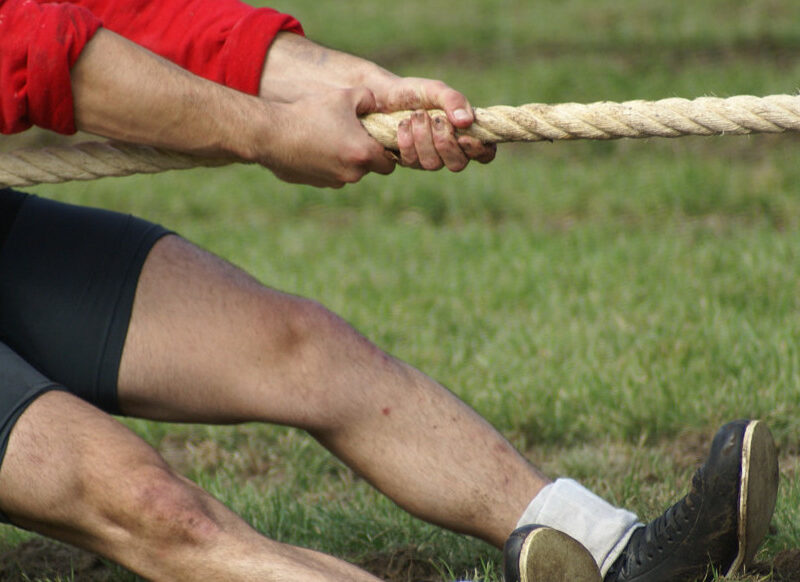April, as you may or may not know, is Autism Awareness Month. I believe this month signifies a desire to not only increase our understanding of such a neurodiverse condition but to also foster an environment of support and acceptance. In these crucial areas, I know for a fact that strides have been made. However, I also know just as well that more can be done. That’s why I’m writing this article, and I’ll keep it short and simple. If there’s one thing I could make everyone understand about autism, it’s this: It’s a struggle. No matter one’s place on the spectrum, it’s a struggle in so many ways.
What do I mean by that? I’ll let the statistics do the talking:
- There’s the issue of unemployment. As many as “two-thirds of young people with autism had neither a job nor educational plans during the first two years after high school” (Source);
- That same source further states that “1 in 4 young people with autism was completely isolated — meaning he or she had not seen or spoken with friends in the past year.” In one study comparing suicidal thoughts and actions in autistic and non-autistic children, “the percentage of children with autism…was 28 times greater than that of typical children…” (Source);
- Compounding this is the financial aspect of it all, as “the current costs of [autism] are more than double the combined costs of stroke and hypertension and on a par with the costs of diabetes” (Source).
In my eyes, autism is special and serious; there’s a lot to fix and only a few want to help. But as sobering as those figures are, this piece of mine is not a simple listing of data and numbers. If you’ve read my other articles, you know that I’ve been personal in many of them and at this very moment, I intend on disclosing more than usual. While I have Asperger’s Syndrome, a form of autism considered the most high-functioning, it has still caused many problems in my life that were chaotic and stressful—I even wound up hurting people along the way. I can recall many an unfortunate event that my autism either created or exacerbated (or both). Some “highlights” are as follows:
- I had very few (if any) friends in public school, and I socialized with someone outside of school perhaps three times.
- I remained socially naïve for many years; one time, my best friend invited me over to his friend’s place and when I didn’t feel well, I tried to use his shower without asking permission. The guy heard the water running, and my best friend stopped me. You might think I was pretty young, right? Like, maybe this took place in middle school? No. I was eighteen. Eight-freaking-teen, and I didn’t understand what the problem was. He thought I was crazy. I’ve certainly felt that way before.
- When I’ve been in situations that cause me unexpected anxiety, my first instinct is to flee. That has always been a part of my autism and it’s caused the most difficulty in my life. Case in point, I accidentally rear-ended a car and fled the scene in a panic. The driver whose car I hit didn’t want any charges pressed, but it was left up to the state, and I was charged with a hit and run. The prosecution didn’t believe that my autism had anything to do with it. Why? In an ironic and cruel twist, I was so high-functioning that they assumed I had no tics or impulse issues, and I almost served a 2-10 year prison sentence. Thankfully, that didn’t happen.
With these statistics and anecdotes in mind, I now ask of you the readers to fully comprehend the implications of autism: If these are the struggles of an autistic individual who managed to be very articulate, independent, and social, what’s it like for those who have it far worse? What’s it like for those who have no employment, little to no education, and an even greater neurological inability to intuitively grasp the most basic mechanisms and dynamics of human communication? I say this not to paint some bleak and hopeless picture but to merely illustrate the reality that we on the spectrum face.
Yes, every story’s not the same. Of course, there are those with autism who’ve managed to thrive in their environment. I could churn out dozens of articles highlighting the advice, the success stories, the unique benefits that autism can bring to society, and you can expect me to do that. But I have chosen for this article to emphasize the struggle, our struggle. I’m referring to those with and without autism, for the truth is it’s a struggle that impacts us all. So how can you help out? Please, please share this article. Share it with everyone you know. Spread awareness of what autism is, and open up your hearts and minds to the truth of our difficulties so that we can continue to progress. The journey of helping adults on the spectrum is a long and rough path. Any time, effort, or donations can truly make a world of difference. Make a donation to Madison House Autism Foundation by clicking here.



 Paving the Road for People with Autism and Other Special Needs
Paving the Road for People with Autism and Other Special Needs


